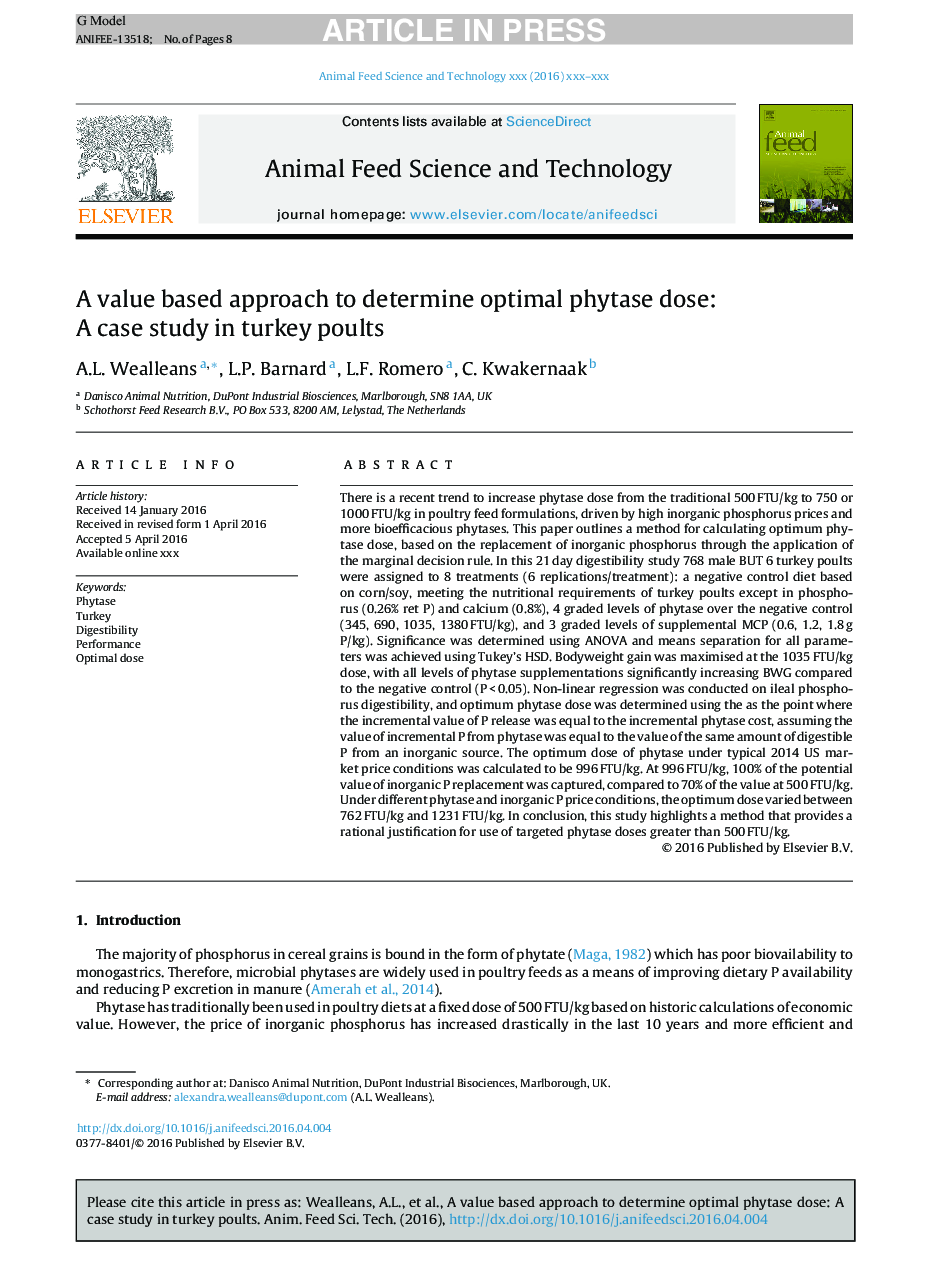| Article ID | Journal | Published Year | Pages | File Type |
|---|---|---|---|---|
| 8491266 | Animal Feed Science and Technology | 2016 | 8 Pages |
Abstract
There is a recent trend to increase phytase dose from the traditional 500Â FTU/kg to 750 or 1000Â FTU/kg in poultry feed formulations, driven by high inorganic phosphorus prices and more bioefficacious phytases. This paper outlines a method for calculating optimum phytase dose, based on the replacement of inorganic phosphorus through the application of the marginal decision rule. In this 21Â day digestibility study 768 male BUT 6 turkey poults were assigned to 8 treatments (6 replications/treatment): a negative control diet based on corn/soy, meeting the nutritional requirements of turkey poults except in phosphorus (0.26% ret P) and calcium (0.8%), 4 graded levels of phytase over the negative control (345, 690, 1035, 1380Â FTU/kg), and 3 graded levels of supplemental MCP (0.6, 1.2, 1.8Â g P/kg). Significance was determined using ANOVA and means separation for all parameters was achieved using Tukey's HSD. Bodyweight gain was maximised at the 1035Â FTU/kg dose, with all levels of phytase supplementations significantly increasing BWG compared to the negative control (PÂ <Â 0.05). Non-linear regression was conducted on ileal phosphorus digestibility, and optimum phytase dose was determined using the as the point where the incremental value of P release was equal to the incremental phytase cost, assuming the value of incremental P from phytase was equal to the value of the same amount of digestible P from an inorganic source. The optimum dose of phytase under typical 2014 US market price conditions was calculated to be 996Â FTU/kg. At 996Â FTU/kg, 100% of the potential value of inorganic P replacement was captured, compared to 70% of the value at 500Â FTU/kg. Under different phytase and inorganic P price conditions, the optimum dose varied between 762Â FTU/kg and 1231Â FTU/kg. In conclusion, this study highlights a method that provides a rational justification for use of targeted phytase doses greater than 500Â FTU/kg.
Related Topics
Life Sciences
Agricultural and Biological Sciences
Animal Science and Zoology
Authors
A.L. Wealleans, L.P. Barnard, L.F. Romero, C. Kwakernaak,
